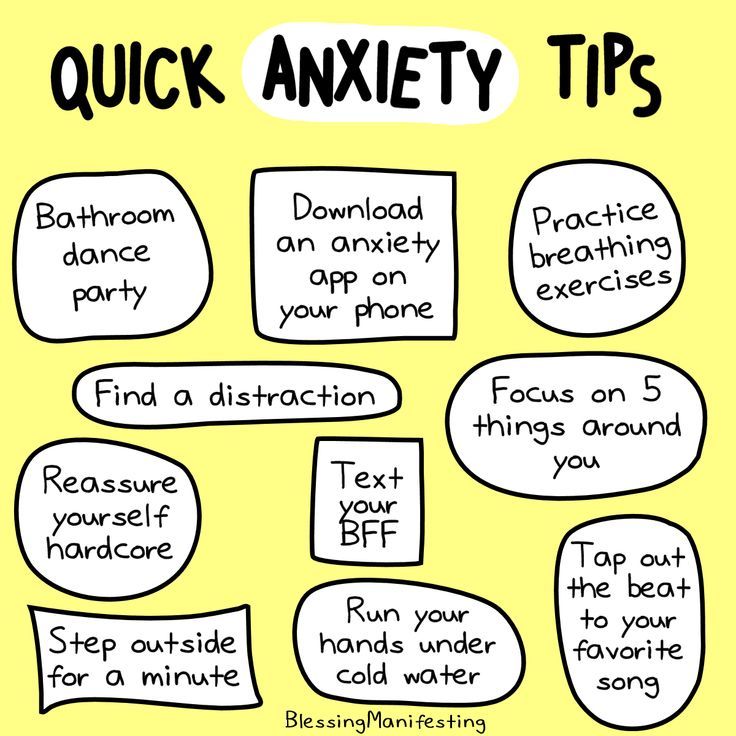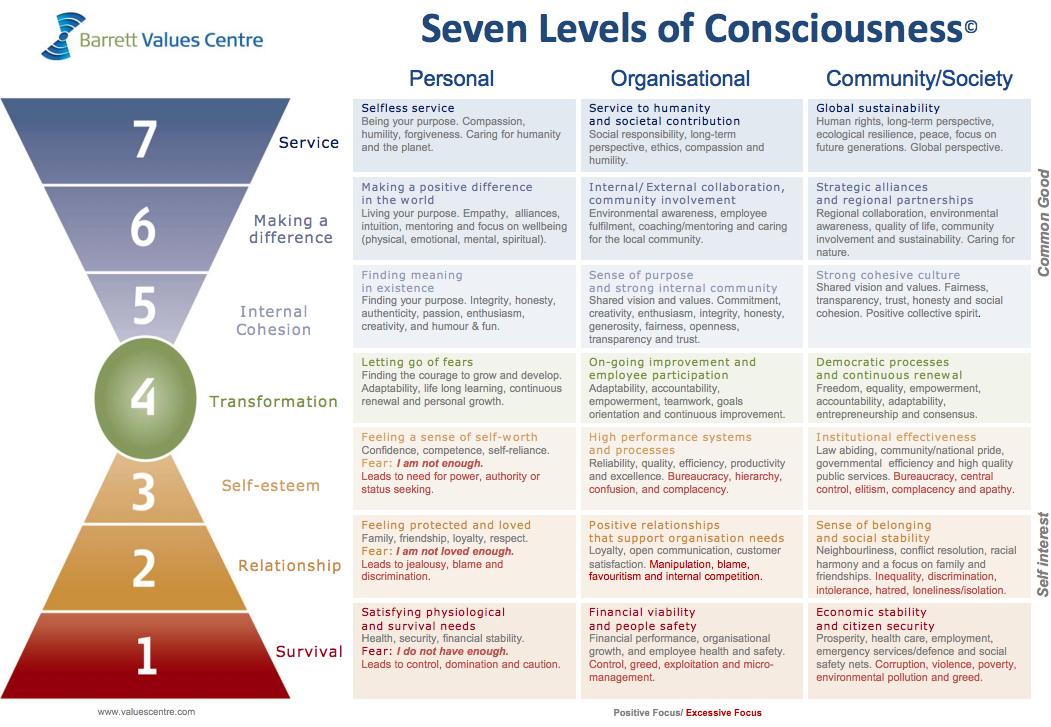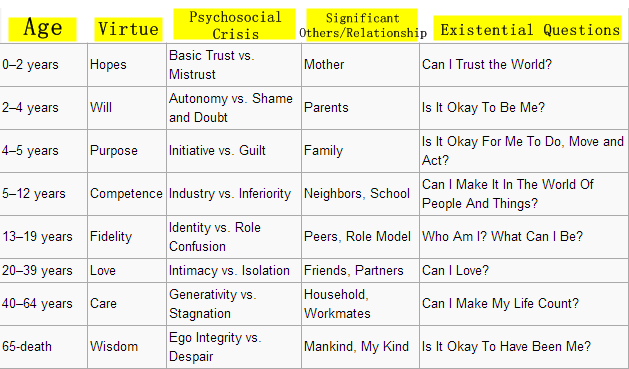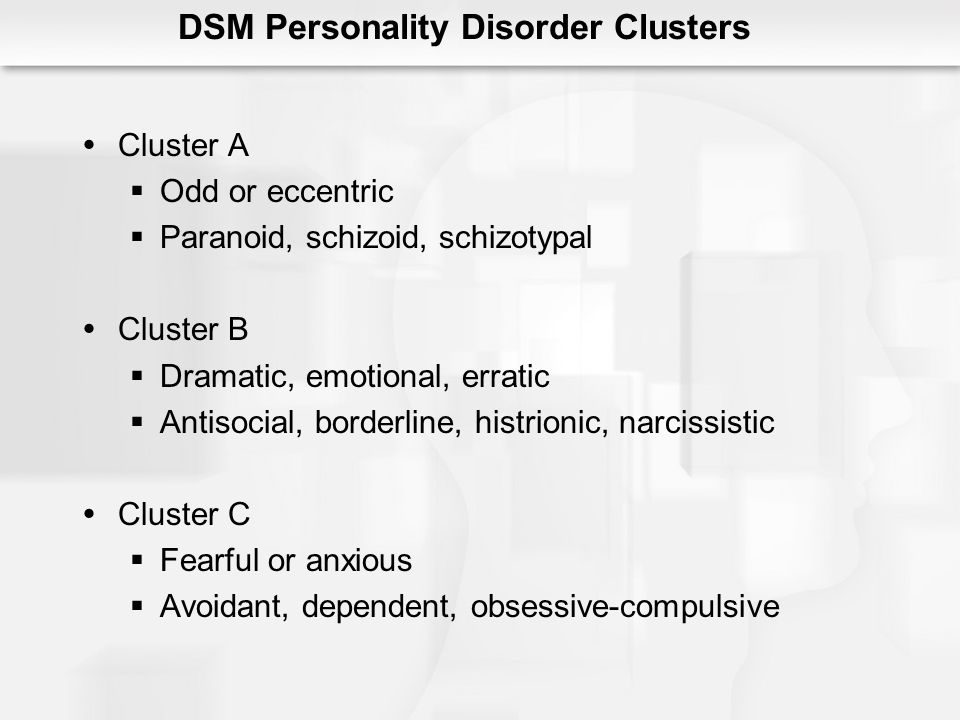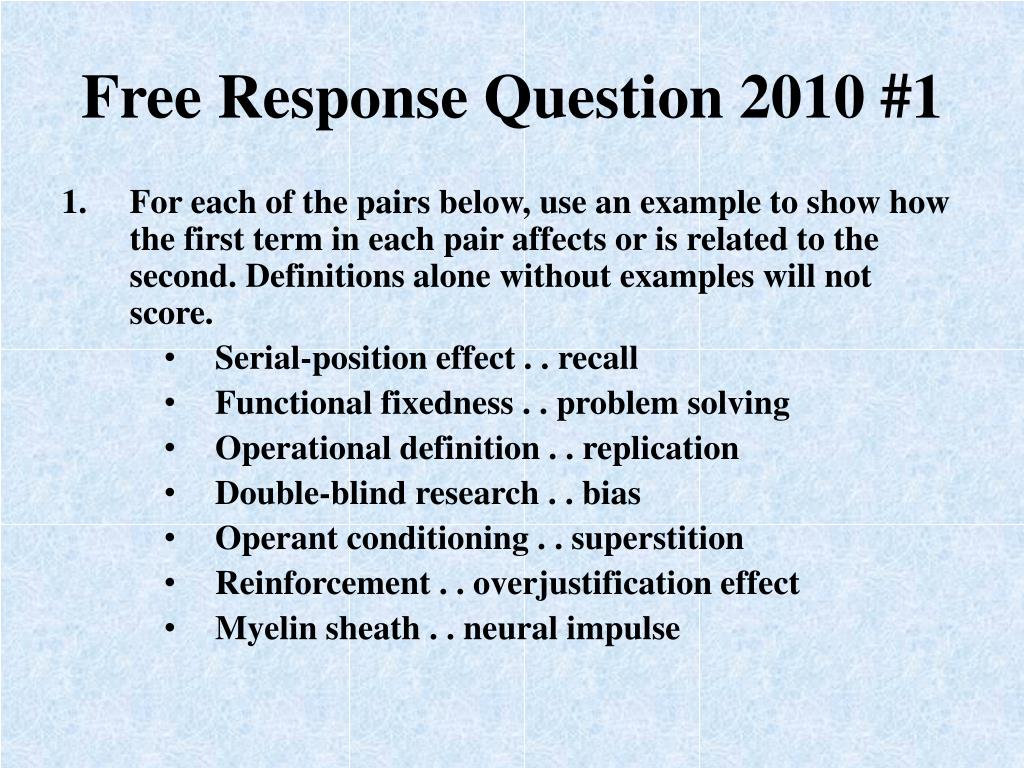How to fight mind control
Strategies To Combat Mind Control In D&D
As a player of Dungeons & Dragons, one of the worst things that can happen to you is to lose control of your character. Having them turned into a minion and forced to fight your own friends can be infuriating, especially if there's nothing you can do about it. Or when an ally is mind controlled, and you don't want to hurt them in the process of saving them. What do you do in situations like this?
RELATED: Dungeons & Dragons: Best Enchantment Spells
There are abilities, races, and whole builds that can prevent such things from ever happening to you, and sometimes even your friends. Or you can just beat up whoever is doing the control. Here are a few tips on the matter.
5/5 Buff Your Wisdom Score
Tasha's Cauldron of Everything by Magali VilleneuveAmong the ability scores that revolve around the character's psyche, Wisdom is certainly the most advantageous. Even for classes that do not need Wisdom for anything, it's good to make sure it won't give you negative bonuses at the very least. Mind control abilities are not guaranteed, so you'll have to roll a saving throw against it, and they all use Wisdom for such rolls. Ultimately, Wisdom is your first line of defense against mind control.
Upon character creation, you can choose a class that relies on Wisdom for magic and also gets proficiency in its saving throws. If you've already made your character, you can buff this ability score as you level up, or you can get Resilient, a feat that gives you proficiency in an ability score of your choosing, as well as one extra point in its score. So even as a Fighter, for instance, you can improve the odds through such a feat.
4/5 Create An Elf
The Companions Cover Art by Tyler JacobsonIn case you're in the character creation phase, and you're building them around this concept, a specific race that will help achieve your goal is the Elf (and the Half-Elf, for the same reason). What helps you here is a racial trait called Fey Ancestry. Aside from making you immune to being put to sleep, the key part here is that it gives you resistance against any spell that tries to charm you.
RELATED: Dungeons & Dragons: The Types Of Elves Explained
Essentially, if someone casts Suggestion or Dominate Person, among a few others, against you, you'll have an advantage on your Wisdom saving throw, giving you a higher chance of escaping from the effect. Sadly, Fey Ancestry won't trigger against Command, but this spell isn't as menacing as the other ones listed.
3/5 Counterspell And Dispel Magic
Useful against any spell really, these two can save you or your friends in dire situations. As long as you see whoever is casting the spell, you can prevent it before it even happens with Counterspell, saving yourself in the process. This is particularly useful for spellcasters with low Wisdom scores, such as a Wizard, Warlock, or Sorcerer.
Some spellcasters don't have Counterspell as an option, however, and there's also the issue that it prevents a spell from being cast only. In case it has already happened, you can then use Dispel Magic instead, which is available for a lot more classes and can stop the mind control even if it has started. It won't save yourself, but you can save your friends with that.
It won't save yourself, but you can save your friends with that.
2/5 Use Classes With Resistances
Paladin from the Player's Handbook by Wizards of the CoastSome classes have specific abilities that allow you to shield yourself from being charmed. For instance, a Path of the Berserker Barbarian can be immune to the charmed condition while in Rage, and can even end the mind control if they enter rage after already being charmed.
RELATED: Dungeons & Dragons: All Official Paladin Subclasses, Ranked
Another very useful class against mind control is the Paladin. Not only can their aura increase their saving throw bonuses (along with all friends near them), an Oath of Devotion Paladin is straight up immune to charm, and gives their nearby friends immunity as well. Monks are also good against such spells, since they can be proficient with every saving throw, and have the ability to use their action to end a condition such as charmed on themselves.
1/5 Focus On The Caster
Gale, Waterdeep Prodigy by Cristi BalanescuIf all else fails, your choice is but one: go to the one responsible and beat the crap out of them. Most mind-controlling spells are concentration spells, so every time the spellcaster is attacked, they need to roll a concentration saving throw, stopping their spell in case they fail. Not to mention that there's a chance you might kill them by doing these attacks, and death also dispels concentration spells.
Most mind-controlling spells are concentration spells, so every time the spellcaster is attacked, they need to roll a concentration saving throw, stopping their spell in case they fail. Not to mention that there's a chance you might kill them by doing these attacks, and death also dispels concentration spells.
The higher the damage you cause, the more difficult the test will be, so great weapons, smites, and sneak attacks are perfect for breaking someone's concentration. Multiple attacks are also great because the caster will have to roll individually for each attack. A high-level Magic Missile, though each saving throw will be easy, will force a lot of rolls from the enemy, exponentially increasing the odds of failure. As a spellcaster, you can also give them a taste of their medicine, using Command or Suggestion to make them lose focus on their concentration.
Lastly, Mage Slayer is a powerful feat to have in such a situation. Among its effects, one of them forces whoever you hurt to do concentration saving throws at a disadvantage, which also increases the chances of them losing it. And there are no restrictions for what type of attack, so any tactic above combined with Mage Slayer would be extremely efficient.
And there are no restrictions for what type of attack, so any tactic above combined with Mage Slayer would be extremely efficient.
NEXT: Dungeons & Dragons: The Best Spells To Upcast
Defense Against Mind Control Techniques and Cult Recruitment
The idea of brainwashing had a viral moment in the 1950s when the U.S. Central Intelligence Agency (CIA) decided to wage psychological warfare against Communism. Project MKUltra secretly experimented with “mind control” techniques, dosing people with lysergic acid diethylamide (LSD) without their consent. In fact, at one point the CIA owned the entire world’s supply of the psychedelic drug. But it wasn’t just CIA operatives who fell for the brainwashing hysteria. After 918 people died in the Jonestown Massacre of 1978, much of the general public came to believe that cult leaders like Jim Jones could criminally override peoples’ personalities in order to gain converts.
Psychologists don’t use the term brainwashing anymore. It’s just not a thing. They talk about influence, persuasion, manipulation, and coercion, but the idea that someone’s brain can be hijacked has been thoroughly debunked, in large part because it’s untestable. Similarly, social scientists tend to avoid the term “cult” in favor of “new religious movement” (NRM) because all too often religious sects viewed as weird or distasteful are labeled cultic. These shifts in language are part of an effort to give people back their psychological agency.
It’s just not a thing. They talk about influence, persuasion, manipulation, and coercion, but the idea that someone’s brain can be hijacked has been thoroughly debunked, in large part because it’s untestable. Similarly, social scientists tend to avoid the term “cult” in favor of “new religious movement” (NRM) because all too often religious sects viewed as weird or distasteful are labeled cultic. These shifts in language are part of an effort to give people back their psychological agency.
But just because cultic experts no longer think in terms of brainwashing and deprogramming doesn’t mean that regular people aren’t still in danger of being manipulated by bad actors and dark psychology forces. The only way to protect yourself is to stay informed about these mind control techniques so you’ll be able to recognize them in the wild. You can’t just assume that you’ll be able to outsmart millions of years of neuroevolution. After all, people are drawn to cults for the same reasons they’re drawn to church, family, and the self-improvement section of the bookstore.
Cult conversion doesn’t happen overnight. Here’s a scary thought: A destructive cult might be actively conditioning you right now. Fortunately, you can stop cult recruitment in its tracks by learning the warning signs. And if all goes well you’ll be able to apply these lessons to other forms of influence, like consumer compliance and interpersonal manipulation, the next two subjects in this three-part Thriveworks mind control series.
10 Warning Signs of Cult RecruitmentResearch shows that anyone is susceptible to joining a cult. “Not me!” you say. Yes, you. The self-serving bias that makes people think they’re the exception to the rule can make them feel invulnerable—and leave them unprotected from pathological salespeople. You don’t have to be particularly gullible, insecure, or emotionally needy to be successfully recruited. Cults exploit psychological elements that are hardwired in pretty much everyone. Here’s how they do it:
- Social isolation.
 If you are seeing less and less of your family and peers in favor of your new best friends, ask yourself why. Cults gradually chip away at your community until only cult members remain. If the cult is your entire world—a closed system—then leaving it can feel really scary.
If you are seeing less and less of your family and peers in favor of your new best friends, ask yourself why. Cults gradually chip away at your community until only cult members remain. If the cult is your entire world—a closed system—then leaving it can feel really scary. - Cyber isolation. If all your Facebook friends agree with you, ask yourself why. Cyber isolation can lead to confirmation bias. That means you only see information that supports what you already believe. And your beliefs are also continually validated in the echo chamber of cyber isolation. The Facebook algorithm shows you things you want to see in a never-ending cycle of digital influence.
- Promised rewards. If you find that you’re on the verge of amazing accomplishments or the fulfillment of your wildest dreams, ask yourself why. Cults promise gifts like a spiritual Wheel of Fortune: enlightenment, self-actualization, love, unlicensed psychotherapy, companionship, exorcism, peace of mind, perfect health, eternal life, great sex, a forever home, a loving family.
 Over-the-top rewards are part of the conversion process. How can anyone say no?
Over-the-top rewards are part of the conversion process. How can anyone say no? - Phobia indoctrination. If you find that you have a lot of new fears, ask yourself why. Seeing threats everywhere? Cults use fear to induce people to stay within their ranks, where they’ll be safe. And naturally the only person who can truly protect you is the cult leader. Who is also responsible for punishing you. Their methods are effective because they alternate fear with love, leading to disorganized attachment.
- Heightened emotion. If you find yourself feeling extremely happy, angry, or scared, ask yourself why. Cults trigger big emotional responses and then direct that emotion toward a strategic target when you’re at your least rational.
- Love-bombing. If you find yourself feeling more loved than you ever have in your life, ask yourself why. This is a tactic that narcissistic manipulators use in interpersonal relationships, but it also applies to cultic attempts at thought reform.
 Cult members will spoil you with attention and affection in order to make you feel connected and important. And people keep coming back for the love drug.
Cult members will spoil you with attention and affection in order to make you feel connected and important. And people keep coming back for the love drug. - Us vs. them mentality. If you find that you have a lot of enemies all of a sudden, ask yourself why. Cults invent enemies to help solidify the group identity. When you envision yourself as a missionary for good versus evil, there might be too much at stake for you to abandon your cause.
- Social influence. If you find that everyone around you agrees on something, ask yourself why. Psychological studies show that compliance goes up with the number of people involved. Most people won’t reject an idea if the whole group supports it. And cult prospects are typically overwhelmed with group-ecstatic activities, which can lead them to poor information processing. Essentially, peer pressure makes it impossible for people to function at full capacity.
- Intelligence-dampening.
 If you find yourself too tired or confused to make decisions, ask yourself why. Cults use techniques like sleep-deprivation, alternate states of consciousness, repetition, and thought-stopping to overwhelm someone’s cognitive resources and critical thinking skills. They destabilize your view of reality. And when your mind is under threat, you keep returning to the safety and love of your leader. It doesn’t mean you’re stupid, even if you develop false beliefs. All humans have false beliefs and a tendency toward magical thinking. But cult members depend on the cult for direction when their brains are disoriented.
If you find yourself too tired or confused to make decisions, ask yourself why. Cults use techniques like sleep-deprivation, alternate states of consciousness, repetition, and thought-stopping to overwhelm someone’s cognitive resources and critical thinking skills. They destabilize your view of reality. And when your mind is under threat, you keep returning to the safety and love of your leader. It doesn’t mean you’re stupid, even if you develop false beliefs. All humans have false beliefs and a tendency toward magical thinking. But cult members depend on the cult for direction when their brains are disoriented. - Identity disturbance. If you feel like a new you–a better you–ask yourself why. Cults alternate reward and punishment to stress people out and disrupt their identities. From there, cults can inflict a new identity on a member, one that depends on submission and self-surrender. And it doesn’t help that other sources of identity, like work and school, are slowly taken over by cult participation.

People tend to blame the person instead of the environment when someone joins a cult. This is a common bias called the fundamental attribution error. Again, there’s no reliable personality that’s more gullible to cult recruitment. Cults even adjust their methods toward different people’s desires like a great marketing team. But there are situational factors that can make people more receptive to a cultic system.
- You’re feeling lonely. Have you just moved to a new town? Started college? Did you just break up with a boyfriend or have a falling out with a friend? Cults prey on people in these social transitions. That’s why members frequent campuses and airports. Now, they’re also on internet message boards.
- You’re feeling depressed. On the whole, you’re psychologically healthy, but you’ve just suffered a personal loss and are suffering from depressive symptoms.
 You want to feel better fast. Cults offer the promise of quieting your internal demons.
You want to feel better fast. Cults offer the promise of quieting your internal demons. - You’re feeling uncertain. The cult expert Margaret Thaler Singer thought that cults thrived during times of political and social unrest. Disillusionment with your culture and concern about the state of your country means that you’re more receptive to alternative visions.
- You’re feeling spiritually unfulfilled or dissatisfied. You’re searching. Former cult members report that spirituality is one of the main factors influencing conversion.
- You distrust authority, institutions, and the “mainstream.” This distrust can lead to conspiracy theories, a breakdown of social relationships, and a decreased sense of security. Cults can fill the void.
And lo and behold, there’s a cult near you. Cult members lead you to controlled social situations where they have your full attention. Then they offer simple solutions to your temporary problems.
We’re all vulnerable to assaults on our minds because we’re social animals with certain cognitive proclivities. But you can resist extreme influence by educating yourself, asking the right questions, and not feeling guilty or ashamed for being human. Sometimes avoiding cult recruitment is as simple as delaying your response to invitations. During this time, you can do the following:
- Recognize that you have emotional needs, and that’s okay.
- Ask yourself if those emotional needs are being manipulated.
- Identify an opposing message, or a neutral message.
- Compare different sources of information.
- Reach out to your support network.
- Remember that you are an autonomous individual with the personal freedom to choose your affiliations.
People do leave cults. Sometimes the cognitive dissonance becomes overwhelming. Members may have seen too many things that didn’t make sense, too many contradictions, and even too many doomsdays that didn’t happen. Sometimes they’re physically removed from the coercive environment for long enough to gain perspective. For example, some cult members report leaving cults after hospital stays. In any event, the exit process is easier for cult members when people from their old life have remained in their orbit, through thick and thin.
Members may have seen too many things that didn’t make sense, too many contradictions, and even too many doomsdays that didn’t happen. Sometimes they’re physically removed from the coercive environment for long enough to gain perspective. For example, some cult members report leaving cults after hospital stays. In any event, the exit process is easier for cult members when people from their old life have remained in their orbit, through thick and thin.
You are free to convert to a new religion, but NRMs need to have your informed consent. Destructive cults keep people in the dark, unaware that they’re being changed through the techniques listed above. You never get to see the narcissistic leader’s full agenda. But a wide spectrum of knowledge is the key to protecting yourself. You can’t be deployed if you keep asking the right questions.
Mind Control: Proven Methods
Perfect control over the mind: thoughts and emotions, helps to work miracles. These five methods of strengthening self-control will help you regain your self-control
Vladimir Ravilov ⏳ 05-19-2015 06-25-2021
Self-monitoring. Author: ranplett. Source: www.huffingtonpost.comSelf-control. Author: ranplett. Source: www.huffingtonpost.com
Author: ranplett. Source: www.huffingtonpost.comSelf-control. Author: ranplett. Source: www.huffingtonpost.com Contents:
-
- There is always a choice, believe me!
- Positive self-talk
- Say “Why?” Not “How?”
- Strengthen your muscles
- Meditation restores self-control
The modern reality is that daily mental stress is at the limit of human capabilities and procrastination has become our indispensable companion. Often it is simply impossible to force yourself to get down to business, even for such a trifling thing as morning exercises.
If you are tired of all this and you are looking for ways to cheer up and take control of your mind, increase your efficiency, then this article will help you. Away with the blues, laziness and postponing things for later! These five ways are guaranteed to increase your focus and self-control. nine0003
Our vitality is rapidly dwindling in the office. It gets to the point that the end of work is perceived by the body as manna from heaven and happiness spills over the body and only one thing worries - tomorrow you have to work again and the morning meeting is already scheduled on the calendar, you again stay late at work and drink too much coffee. The next morning you feel empty, and self-esteem tends to zero. Familiar? We all feel it. But an inner voice told us that the best way out of the situation would be to go home and rest properly. nine0003
It gets to the point that the end of work is perceived by the body as manna from heaven and happiness spills over the body and only one thing worries - tomorrow you have to work again and the morning meeting is already scheduled on the calendar, you again stay late at work and drink too much coffee. The next morning you feel empty, and self-esteem tends to zero. Familiar? We all feel it. But an inner voice told us that the best way out of the situation would be to go home and rest properly. nine0003
Modern scientific theories say that human self-control is a very limited resource that is subject to depletion, and the more you use it, the faster the depletion. However, the latest research shows that self-control can be activated in simple ways. Let's take a look at these five completely scientific methods for increasing self-control and self-mastery.
There is always a choice, believe me!
There is always a choice. Source: firstthingsproductivity.com It is enough to remind yourself several times a day that you have a choice in a given situation. This is very useful and quite enough to start getting out of the impasse. Why? But because a study conducted in the fall of 2012 at the University of Provence, in Marseille, France, showed that when participants were deprived of faith in free will, they performed worse on tasks that require self-control and self-control. nine0003
This is very useful and quite enough to start getting out of the impasse. Why? But because a study conducted in the fall of 2012 at the University of Provence, in Marseille, France, showed that when participants were deprived of faith in free will, they performed worse on tasks that require self-control and self-control. nine0003
The researchers divided the study participants into two groups: one group received messages that deprived freedom of choice, and the other group received messages with neutral wording. Then the participants were given the task to do certain actions, which require an effort of will.
It was noted that people who received messages that left no choice performed much worse than those who received tasks of neutral content. In addition, people from the first group believed that all of them did not have enough self-control to change the situation. nine0003
Thus, simply by reminding yourself that there is always a choice, you will be able to control yourself and direct your will to certain actions. It's simple, isn't it?
It's simple, isn't it?
Positive internal dialogue
Internal dialogueTalking to yourself is not always a sign of insanity - it is one of the signs, but not in this case. A positive internal dialogue helps organize the work of thought to implement plans and maintain a healthy lifestyle.
A study published in the Journal of Consumer Research shows that those study participants who said to themselves "I'm not doing this..." were better able to resist the temptation to give in to weakness and skip another workout or eat junk food than those who who said to himself "I can not ...". nine0003
Talking to yourself - what a whining internal chatter you have with yourself - really matters. And the keywords you use while mentally talking to yourself can keep you from derailing your plans for work or eating healthy. In a study published in the Journal of Consumer Research, participants who told themselves "I can't" were better able to resist the temptation to skip the gym or eat junk food than those who said "I can't. .."
.."
I eat candy! works much better than the suggestion "I can't eat candy!". Thus, you assert that you are not doing these things at all, never, and not only at the moment. Study author Vanessa Patrick says that despite the slight difference in wording, people who say to themselves "I'm not doing this ..." feel free to choose and push forward persistently towards the goal. Those who only delay the fulfillment of desires or deny themselves sink into helplessness and despair. Choose the words you say carefully, even within yourself. nine0003
Say “Why?” Not “How?”
In the process of forming healthy habits, it is important to have a good plan of action. Researchers have found that by focusing on why you are making changes, instead of thinking about how you will do it, you can achieve your goal faster and more effectively.
This technique has been tested on heavy smokers and the results of the study have been published in a journal of drug abuse. Some study participants were asked to focus on the reasons why they would like to stay healthy (for example, to be more energetic and improve the quality of life), others were asked to spend time and energy thinking about how they can achieve their goal (for example, by avoiding meeting with smokers and places for smoking). The first group showed more self-control in the fight against the habit than the second, exactly 50 percent. nine0003
The first group showed more self-control in the fight against the habit than the second, exactly 50 percent. nine0003
So, if you need to make an effort to change the situation, think about the end goal, creating a holistic picture of change, rather than focusing on ways - this will help you actively control the process of change and regain composure.
Gymnastics is good for the mind. Source: www.magic4walls.comWhatever all the wise men tell you, physical strengths are in direct correlation with spiritual strengths - "A healthy mind in a healthy body."
Scientists have discovered a certain relationship between most mental attitudes and the physical experience of a person - that is why figurative expressions such as “Shake it up!” are often used. or "I'm carrying a heavy load!", in situations where carrying heavy loads is not implied. Associations with physical activity affect mental mood, our thoughts and emotions. nine0003
Five interrelated scientific studies, published in April 2011 in the Journal of Consumer Research, show that strengthening muscles during periods of mental stress can increase willpower and resolve to achieve goals and overcome temptation.
For example, clenching your fists while thinking about a difficult choice can make the right decision faster and easier than lying on the couch. Better yet, make decisions in the gym - this will kill two birds with one stone: strengthen your willpower and improve your physical fitness. nine0003
Meditation restores self-control
Meditation makes you stronger. Source: wellandgood.comScientific research has shown that self-control and self-mastery may well be the result of meditation - as a result of meditation, you can find those levers to restrain the forces of consciousness that are not available in the ordinary state. This helps to mobilize mental strength to solve difficult problems and helps with self-education.
The researchers compared three groups of participants: two groups performed an emotional self-suppression task that depleted the power of self-control, and a third group could do whatever they wanted while meditating. Then the subjects were given tests on the level of self-control - everyone drew lines and tried to focus for five minutes. Those who suppressed themselves were not able to properly cope with the task. nine0003
Those who suppressed themselves were not able to properly cope with the task. nine0003
Meditation restored the level of self-control to the maximum level, helped relaxation and kept the mind in a better condition. This means that sometimes you need to listen to your body and subconscious.
Tags: psychology, meditation, self-control, mind, life
- 5 to treatment
8 ways to free your mind and regain control over your own life
From birth, our mind begins to be programmed by both the environment and society. As we grow and develop, we gradually come to understand that it turns out that removing some of these programs and regaining control over our own mind and consciousness is very useful.
You don't have to be a person waiting for everyone's approval. Your relationship should not be a soap opera script. It makes no sense to direct energy to meaningless actions, which often simply distract you from your goals and aspirations. Believe me, you can really cleanse yourself of unnecessary thinking and regain peace of mind and a sound mind. nine0003
Believe me, you can really cleanse yourself of unnecessary thinking and regain peace of mind and a sound mind. nine0003
It's not easy, because we're surrounded by temptations everywhere, pushing us to create unnecessary and meaningless priorities. They are trying to return us to compulsive consumption and selfishness, and therefore deprive us of our own significance and emotional freedom. It's time to flip the switch. Perhaps these eight methods will help you with this.
1. Be selective about the information you "consume"
Marketers around the world track your behavior patterns by using your personal information and studying your online and offline habits in order to encourage you to buy products from companies that hire them . If you are prone to impulsive and unnecessary purchases, they have been aware of this for a long time, they even calculated the percentage of probability that you will make a particular purchase. They will besiege you with advertisements until your willpower is weakened. It is simply a form of mind control practiced daily and hourly. Stop depending on these mega-corporations, make strong-willed and sound decisions solely in your interests. nine0003
It is simply a form of mind control practiced daily and hourly. Stop depending on these mega-corporations, make strong-willed and sound decisions solely in your interests. nine0003
2. Prioritize YOUR desires in terms of outer and inner stability
When your time to die comes, you will die. Therefore, give yourself a chance to live the way you want it here and now. Life is really too short to spend a lot of time figuring out and worrying about what other people think of you. If everything was in order in their lives, would they find the time and desire to talk about you and give you an assessment? What matters to you is not their opinion of you, but your opinion of yourself. So don't let other people get in your way! And don't let your fears do it! They don't exist to scare you. They exist only so that you learn to overcome them. nine0003
3. Stop just wanting and start doing
Do what needs to be done today so that tomorrow you will be able to do what you always wanted to do. Perhaps you think that all you should want is "an easy and carefree life." Alas, not entirely true. You should want to live a life that you will be proud of. And this will require some work, not always easy. Life is an opportunity for growth and development. The only way to grow and develop is the ability to change. The only way to change is through learning and gaining knowledge. The only way to gain knowledge is through effort. The only way to exert effort is our willingness to live, work, and fight the challenges of life. nine0003
Perhaps you think that all you should want is "an easy and carefree life." Alas, not entirely true. You should want to live a life that you will be proud of. And this will require some work, not always easy. Life is an opportunity for growth and development. The only way to grow and develop is the ability to change. The only way to change is through learning and gaining knowledge. The only way to gain knowledge is through effort. The only way to exert effort is our willingness to live, work, and fight the challenges of life. nine0003
4. Develop daily correct actions and habits
You are the person that you yourself create daily. You are how you spend your days and your life. When it comes to working hard towards a goal (achieving a degree, starting a business, building relationships, starting a family, etc.) that takes time, effort, and enthusiasm, be sure to ask yourself the question: “I’m willing to spend some money on this.” time, but daily?
Think about it. We will ultimately only achieve what we work hard for. This is the power of the developed daily actions and habits.
This is the power of the developed daily actions and habits.
5. Change your perception from negative to positive
We can complain that rose bushes have thorns, or we can rejoice that roses grow on thorny bushes. Don't let negative factors influence you. It is negativity that either becomes our essence or breaks us. If you look at things from a different angle, you can see that the world is a garden and your job is to take care of the garden and grow beautiful roses. Because, in the end, the quality (or orientation) of your perception affects the quality of your life. Train your mind to see the positive and the beauty in everything. Positive is a choice. Happiness in your life depends on the choice and direction of your perception. nine0003
6. Stop looking for and expecting something “perfect”
You are not perfect, just like everyone else. And this is a fact. That's the way it should be. Therefore, do not be afraid of perfection, if only because you will never become it. And don't expect others to be. We are all imperfect beings with our own weaknesses and shortcomings, so do not focus on the weaknesses of other people in order to close your eyes to your own. In the end, perhaps you will realize that so-called perfection (especially in relationships) is just an honest admission of imperfection. nine0003
And don't expect others to be. We are all imperfect beings with our own weaknesses and shortcomings, so do not focus on the weaknesses of other people in order to close your eyes to your own. In the end, perhaps you will realize that so-called perfection (especially in relationships) is just an honest admission of imperfection. nine0003
7. Give yourself a breather
Yes, you can have your own battles and battles in life: you have to overcome obstacles, take care of loved ones, deal with financial problems and struggle to achieve goals. Remember: from time to time in life you need a breather. Sometimes you need to take a break and let the world continue its rotation for a while without your presence. If you don't, you will burn yourself out and burn out. Learn to periodically replenish your energy, or rather, find your own sources of recharging: the opportunity to sleep well, make time for communication with loved ones, or just have fun from the heart. Periodically break the chaos of the routine! nine0003
8.

